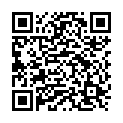|
|
|
| Module code: BAKM-035 |
|
|
2S (2 hours per week) |
|
3 |
| Semester: 1 |
| Mandatory course: yes |
Language of instruction:
German |
Assessment:
Written composition or written examination, type and duration of the examination for the selected topic are specified in the module handbook.
[updated 19.11.2019]
|
Exam recurrence:
The information regarding exam recurrence is found within the exam policy of the study programme (ASPO).
|
BAKM-035 (P430-0027) Cultural Management, Propädeutikum, ASPO 01.10.2020
, semester 1, mandatory course
|
30 class hours (= 22.5 clock hours) over a 15-week period.
The total student study time is 90 hours (equivalent to 3 ECTS credits).
There are therefore 67.5 hours available for class preparation and follow-up work and exam preparation.
|
Recommended prerequisites (modules):
None.
|
Recommended as prerequisite for:
|
Module coordinator:
Prof. Dr. Jörg Abbing |
Lecturer:
Dozierende des Studiengangs
[updated 25.10.2018]
|
Learning outcomes:
For "Music Didactics", for example:
After successfully completing this module, students will:
_ be able to design sustainable communication projects for different target groups on different topics
based on their knowledge of the determinants and content of music learning,
_ be able to act appropriately in various mediation situations with the help of a broad repertoire of music pedagogical approaches,
_ be able to assess the consequences of organizational decisions on the results of music-related mediation projects,
_ be able to apply psychological and sociological aspects of music learning, i.e. be able to make suitable pedagogical decisions and methodically differentiated offers in concrete mediation situations based on their knowledge of the psychological and sociological aspects of music learning. Students will also be able to identify and take into account individual prerequisites when working with heterogeneous groups. When communicating with colleagues, they will be able to explain and justify the needs and content of cultural educational offers.
[updated 19.11.2019]
|
Module content:
Students will:
_ become familiar with the possibilities of initiating aesthetic experiences.
_ acquire basic knowledge about the conditions under which musical performance and presentation take place.
_ learn to assess the potential of open, fragmentary or processual aesthetic products.
_ acquire basic knowledge about the anthropological, perception-psychological, development-psychological, gender-specific and neurobiological aspects of learning music, as well as about musical socialization and talent.
_ be able to critically examine recent discussions on theories on aesthetic perception and aesthetic education, as well as theories on music representation.
[updated 19.11.2019]
|
Teaching methods/Media:
Seminar or lecture
[updated 19.11.2019]
|
Recommended or required reading:
_ Bruhn, Herbert / Kopiez, Reinhard / Lehmann, Andreas C. (Hrsg.): Musikpsychologie. Das neue Handbuch, Hamburg 2008.
_ Gruhn, Wilfried / Seither-Preisler, Annemarie: Der musikalische Mensch. Evolution, Biologie und Pädagogik musikalischer Begabung, Hildesheim 2014.
_ Schatt, Peter: Einführung in die Musikpädagogik, Darmstadt 2007.
_ Stiller, Barbara: Erlebnisraum Konzert. Prozesse der Musikvermittlung in Konzerten für Kinder, Regensburg 2008.
_ Wimmer, Constanze: Musikvermittlung im Kontext. Impulse _ Strategien _ Berufsfelder, Regensburg 2010.
[updated 19.11.2019]
|


